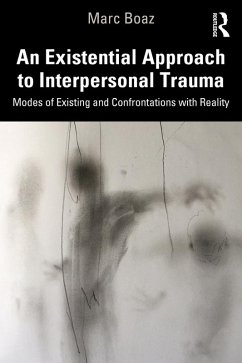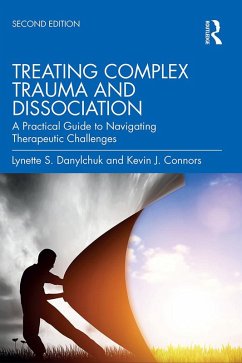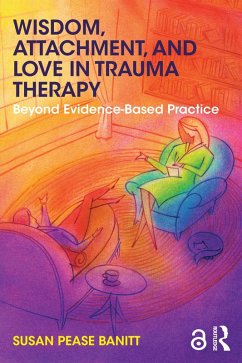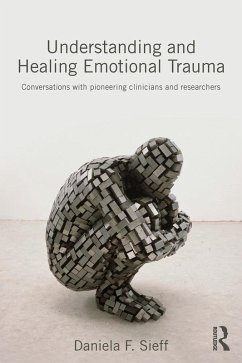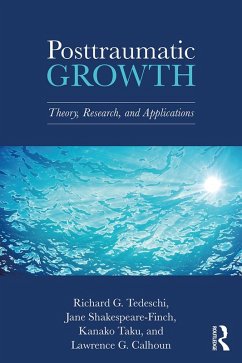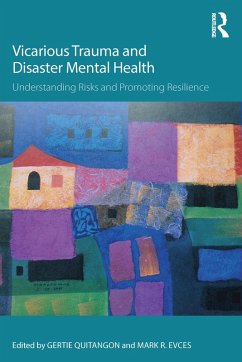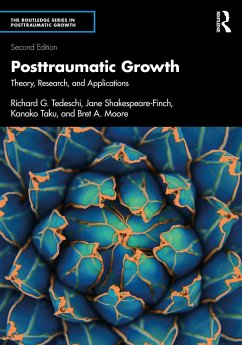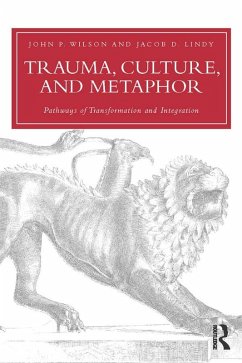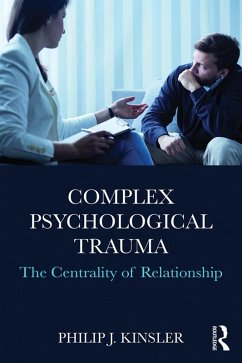
An Existential Approach to Interpersonal Trauma (eBook, ePUB)
Modes of Existing and Confrontations with Reality
Versandkostenfrei!
Sofort per Download lieferbar
32,95 €
inkl. MwSt.
Weitere Ausgaben:

PAYBACK Punkte
16 °P sammeln!
An Existential Approach to Interpersonal Trauma provides a new existential framework for understanding the experiences of interpersonal trauma building on reflections from Marc Boaz's own personal history, clinical insight and research.The book suggests that psychology, psychotherapy and existentialism do not recognise the significance of the existential movements that occur in traumatic confrontations with reality. By considering what people find at the limits and boundaries of human experiencing, Boaz describes the ways in which they can disillusion and re-illusion themselves, and how this b...
An Existential Approach to Interpersonal Trauma provides a new existential framework for understanding the experiences of interpersonal trauma building on reflections from Marc Boaz's own personal history, clinical insight and research.
The book suggests that psychology, psychotherapy and existentialism do not recognise the significance of the existential movements that occur in traumatic confrontations with reality. By considering what people find at the limits and boundaries of human experiencing, Boaz describes the ways in which they can disillusion and re-illusion themselves, and how this becomes incorporated into their modes of existing in the world and in relation to others. In incorporating the experience of trauma into the way people live - all the existential horror, terror and liberation contained within it - Boaz invites them to embrace an expansive ethic of (re)(dis)covery. This ethic recognises the ambiguity and spectrality of interpersonal trauma, and expands the horizons of our human relationships.
The book provides an important basis for professionals wanting to work existentially with interpersonal trauma and for people wanting to deepen their understanding of the trauma they have experienced.
The book suggests that psychology, psychotherapy and existentialism do not recognise the significance of the existential movements that occur in traumatic confrontations with reality. By considering what people find at the limits and boundaries of human experiencing, Boaz describes the ways in which they can disillusion and re-illusion themselves, and how this becomes incorporated into their modes of existing in the world and in relation to others. In incorporating the experience of trauma into the way people live - all the existential horror, terror and liberation contained within it - Boaz invites them to embrace an expansive ethic of (re)(dis)covery. This ethic recognises the ambiguity and spectrality of interpersonal trauma, and expands the horizons of our human relationships.
The book provides an important basis for professionals wanting to work existentially with interpersonal trauma and for people wanting to deepen their understanding of the trauma they have experienced.
Dieser Download kann aus rechtlichen Gründen nur mit Rechnungsadresse in A, B, BG, CY, CZ, D, DK, EW, E, FIN, F, GR, HR, H, IRL, I, LT, L, LR, M, NL, PL, P, R, S, SLO, SK ausgeliefert werden.




